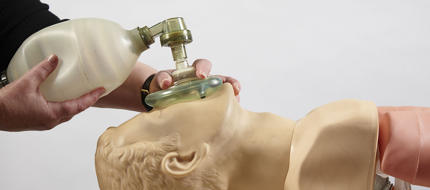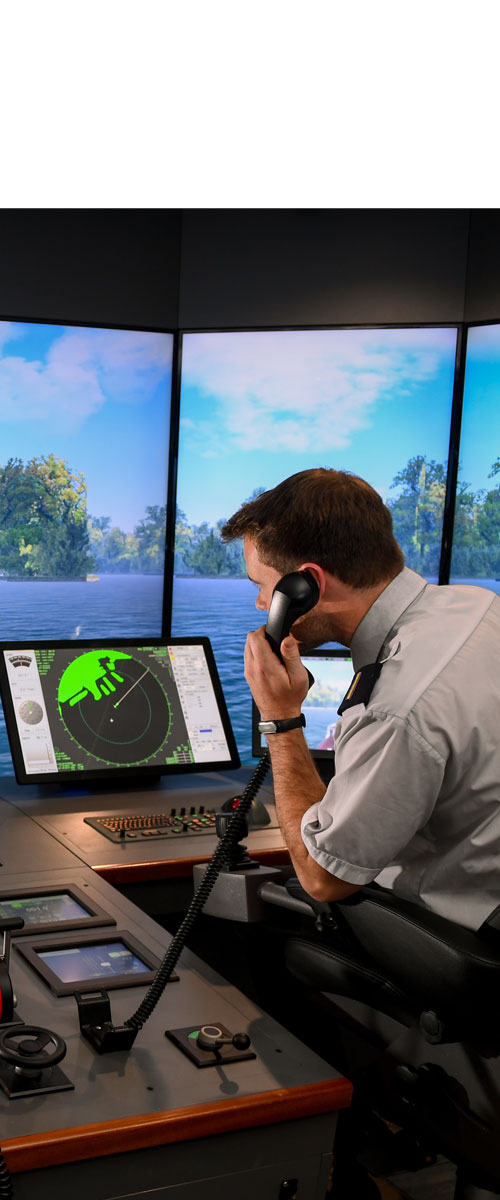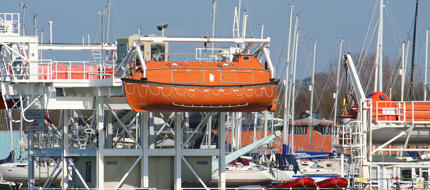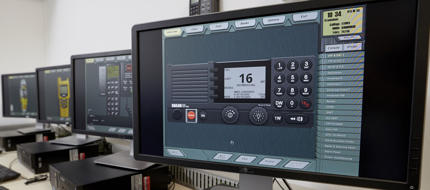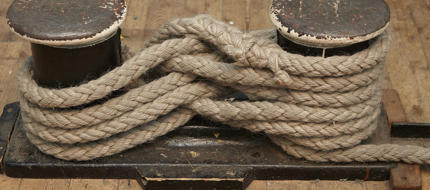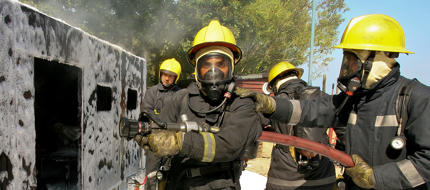About this course
This fully-sponsored cadet training programme leads to an HND Nautical Science, as well as the award of a UK Maritime and Coastguard Agency (MCA) Certificate of Competency (STCW95 II/I OOW).
Officer cadet training schemes typically last for around three years and are split into five phases which alternate between academic studies in Southampton, practical experience and safety training at the Warsash campus and seagoing periods to gain practical shipboard experience.
You'll complete your academic and mandatory safety training with us. This training is complemented with work-based learning on board ship. You'll also do some practical training during your sea phases, which includes completing a MNTB Training Record Book. This will enable you to develop the professional competency needed for the initial MCA certification as an Officer of the Watch.
The scheme consists of five phases - three spent at Warsash Maritime School and two at sea gaining practical experience. The training consists of four distinct but complementary elements:
This programme is aligned to the new UK-wide maritime officer cadetship syllabus developed by the Cadet Training and Modernisation (CT&M) Programme, led by the Maritime and Coastguard Agency (MCA). Effective from September 2025, the new syllabus reflects the current practices and technology used aboard modern vessels and supports the development of 'human element' skills - essential learning for today’s aspiring officers.
Certificate in Practical Artificial Intelligence
Every student at Solent University will also have the option to study an additional Certificate in Practical Artificial Intelligence qualification alongside their course. Free of charge, the course ensures you'll be prepared for a fantastic and varied career after graduation.
What you'll study
Phase 1
- 14 weeks
- Freshers’ week and general induction to the shipping industry
- HE entry course, including:
- Intro to General Ship Knowledge
- Mathematics for Nautical Science
- Intro to Navigation
- Academic Study Skills
- Intro to Ship and Port Operations
- STCW pre-sea short courses – six days, covering PST, BFF, EFA, PSSR, PSA and PDSD.
- Successful completion of the HE Entry Course leads to the award of: Certificate in Nautical Science.
Phase 2
- 39 weeks
Phase 3
- 23 weeks
- Celestial Navigation, Maths and Science
- Marine Cargo Operations
- Marine Meteorology
- Operational Bridge Watchkeeping
- Operational Maritime Law and Project Management
- Operational Naval Architecture and Stability
- Operational Passage Planning and Electronic Charts
- Preparation for SQA examinations
- STCW short courses - EDH and MFA
Phase 4
- 31 weeks
Phase 5
- 45 weeks
- HND Level 5 units (20c each):
- Applied Marine Meteorology
- Management of Vessel Operations
- Management of Passage Planning
- Management of Bridge Operations
- Marine Engineering and Vessel Maintenance
- Ship Stability: Theory and Practical Application
- Shipboard Management
- Shipmasters Law and Business
- NARAS
- Theory and Practice (Including ECDIS) – 4 weeks.
- Preparation for SQA/MCA written and oral examinations
- STCW short courses: AFF, PSC&RB, GMDSS, HELM(O) and NAEST(O)
- Successful completion of HND Level 4 units, SQA/MCA written and oral examinations and STCW short courses leads to the award of the initial MCA Certificate of Competency and end of cadetship.
- Successful completion of all HND academic assessments at the required pass rates provides full academic exemptions to Chief Mate/Master leveland leads to the award of: Higher National Diploma (HND).
How you'll study
Where you'll study
The classroom teaching for this course is delivered from Solent University's East Park Terrace campus, located in Southampton city centre. All mandatory STCW maritime safety training courses are delivered from the Warsash campus.
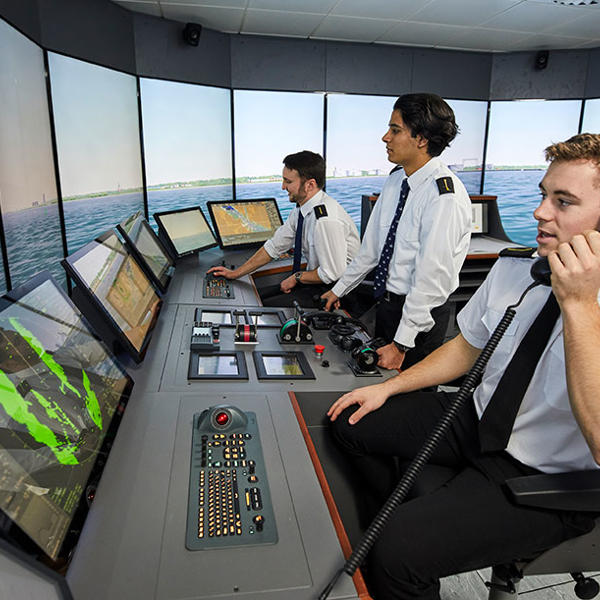
Facilities
How to apply
Entry requirements
Four GCSEs at grade 9 to 4 (A* to C), including:
- Mathematics (preferably Higher Tier)
- Science (with significant Physical Science content)
- English or a subject using English (for example, history, geography, RE) Or
- Passes in four subjects in the Scottish Certificate of Education (as above)Or
- Passes in four subjects in the Northern Ireland Grammar School Senior Certificate Exam (as above).
Medical requirements
Officer cadets must be in good health and capable of passing the Merchant Navy Medical Examination (ENG1). Navigation officer cadets must also have normal colour vision and be able to pass the MCA sight test, although corrective lenses may be acceptable in certain cases.
Anyone contemplating a career as a ship’s officer would be well advised to take a medical examination and sight test as soon as possible to find out if there are any physical bars to their career aspirations.
The MCA holds a list of approved doctors throughout the UK who are able to provide ENG1 seafarer medical examinations. This list can be found here.
Nationality
British shipping companies will normally only recruit UK or European Union nationals. However, the MCA certificates of competency may be awarded to people of any nationality and the training programmes are open to all.
A potential international candidate from outside the UK and EU should secure sponsorship from a suitable shipping company that will be able to provide appropriate sea service as part of the cadetship programme.
International students should also hold a formal International English Language Testing System (IELTS) certificate of at least 5.5, as a good knowledge of written and spoken technical English is required to commence the programme.
Application and sponsorship
To apply for a HND in nautical science, you must undertake a three year deck officer cadet training programme approved by the Merchant Navy Training Board (MNTB), and meet the academic entry requirements as stated.
The next step is to find a company to sponsor you so you can complete the sea service elements of the training programme. You should apply direct to the sponsoring companies for details of their recruitment policies and the availability of sponsorship.
There are a number of UK sponsoring companies that recruit UK/EU nationals as officer cadets to work in the various shipping sectors of the merchant navy (eg, cargo, container, cruise, tanker etc.), either individual shipping companies recruiting to fulfil their own staffing needs or training organisations that recruit on behalf of their clients.
This course has two intakes per year - in April and September.
